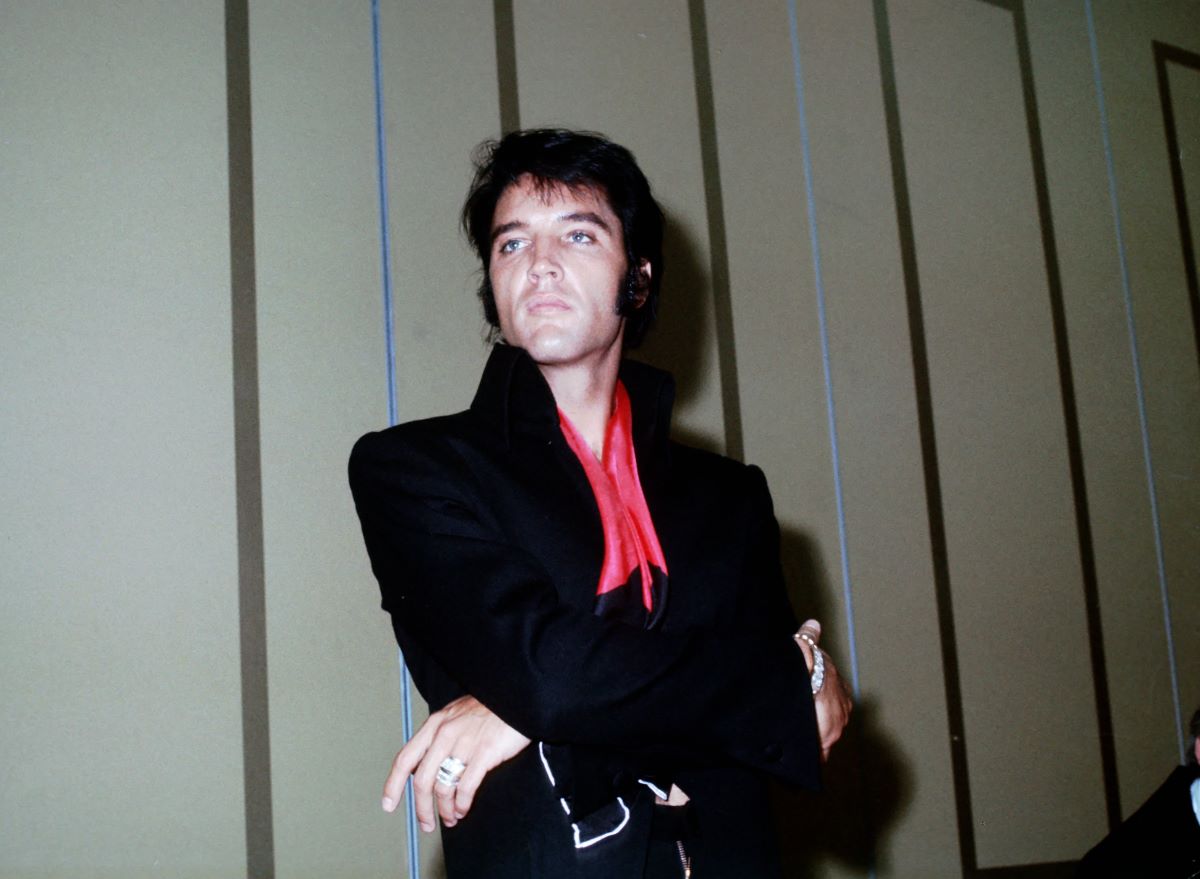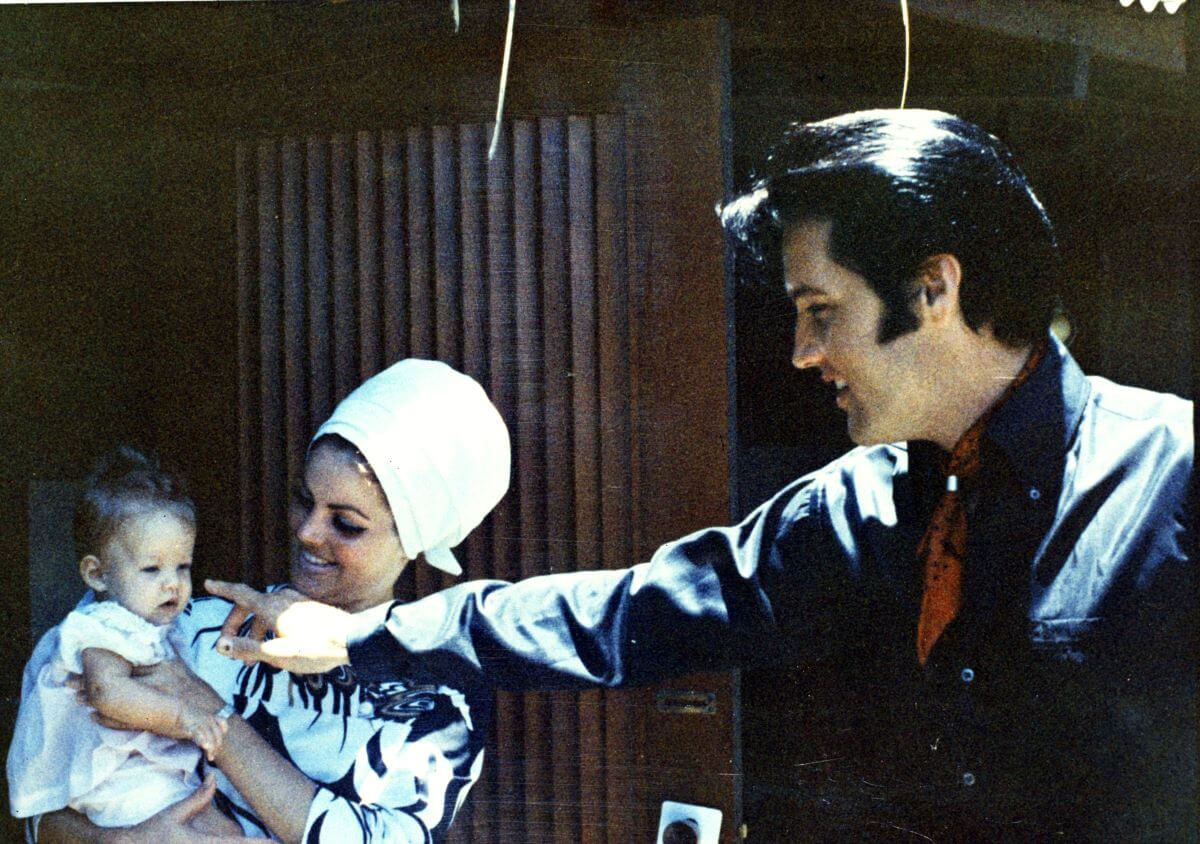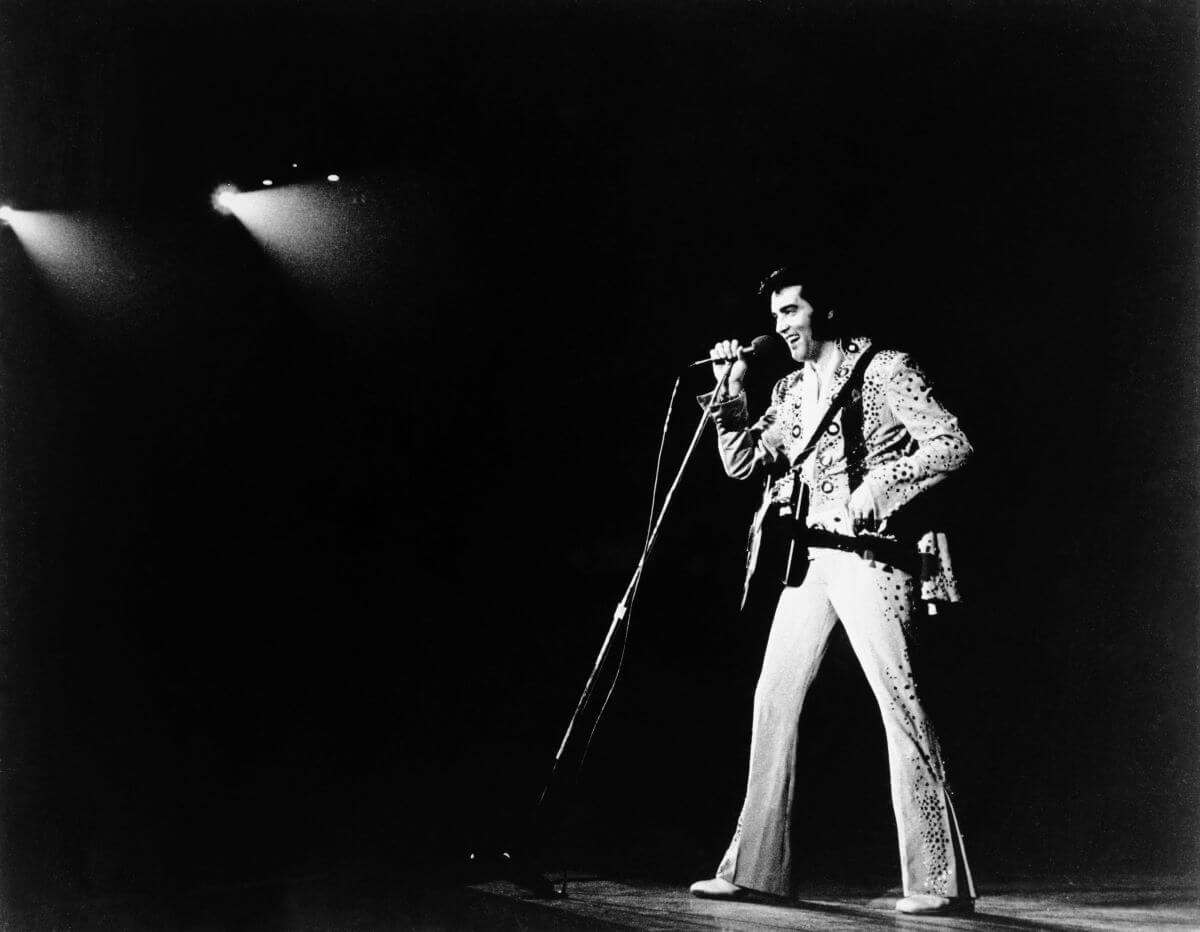
Priscilla Presley Said Elvis ‘Created His Own Real-Life Dramas’ When He Didn’t Have Professional Challenges
Elvis Presley became famous in his early 20s, and, according to his wife Priscilla, he needed to push himself professionally in order to feel fulfilled. While he searched for purpose for much of his adult life, professional challenges seemed to invigorate him. As his music career declined in the 1970s, though, Elvis felt despondent. In the absence of professional challenges, he began inventing problems for himself.
Priscilla Presley said Elvis searched for purpose when he wasn’t working
In 1976, Elvis’ performance style grew erratic. He often didn’t interact with the audience and sometimes canceled shows altogether.
“The Colonel was even concerned about Elvis’ actions while onstage,” Priscilla wrote in her book Elvis and Me. “Elvis started forgetting lyrics and resorting to sheet music. He was acting erratic by ignoring the audience and playing to the band. A few shows were canceled and no one could predict whether or not he’d appear onstage.”

His career no longer challenged him, so he searched for fulfillment elsewhere. Unfortunately, Priscilla explained that he often had to make up problems for himself.
“In the absence of any significant professional challenge, Elvis created his own real-life dramas,” she wrote. “His fascination with guns was now an obsession. He became paranoid over death threats, and from his association with the Memphis local police, he had access to a list of drug pushers. He felt he personally should get them off the streets. Phoning me late one evening, he said, ‘Cilla, you have anyone you want taken care of? Strictly top secret.'”
Priscilla Presley said even professional challenges grew dull for Elvis
Elvis sought purpose through his imagined crime-busting, but he continued to perform. According to Priscilla, he seemed bored with his music and worked to improve. Ultimately, though, this made it harder to take his performances seriously.
“The style, grace, and pride that for the past eight years had been the hallmark of a Presley live performance now bordered on self-parody,” she wrote. “Frustrated with the lack of challenge of each passing show, Elvis resorted to sheer flamboyance, symbolized by his costumes, each more elaborate than the one before, loaded with an overabundance of fake stones, studs, and fringes. There were voluminous capes and cumbersome belts to match. He was performing in garb that added thirty-five pounds to his weight. It was as if he were trying to upstage himself instead of relying on his raw talent.”
The flamboyance of his performances led to increased criticism, which further aggravated Elvis.
The musician was always searching for purpose
By 1977, Elvis’ health was declining, and Priscilla went to visit him at Graceland. While she worried about the changes to his appearance, she was happy to see that he still sought purpose and fulfillment every day.
“His curiosity for answers had not abated,” she wrote. “He was still searching for his purpose in life, still feeling he had not found his calling. If he had found a cause to espouse, whether a drugless society or world peace, he would have had the role he sought in life.”

She believed that no matter how he changed as a person, he would always be generous.
“His generosity was evidence of this part of his nature — his legendary penchant for giving, even to countless people he didn’t know,” she wrote. “But he never found a crusade to pull him out of his cloistered world, a discipline strong enough to counter his escape into drugs.”


